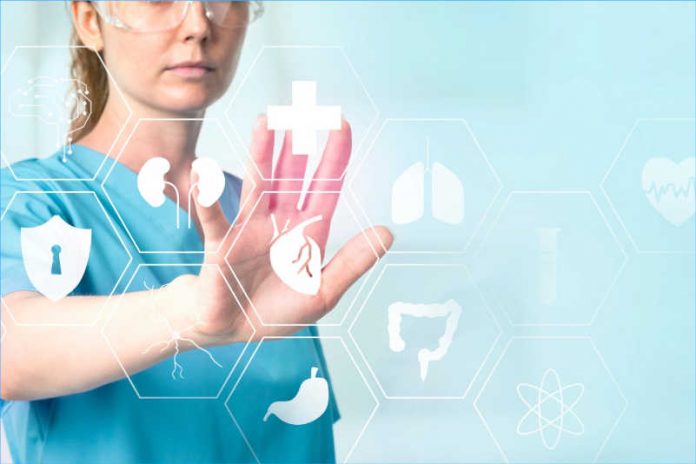Information Technology is a fundamental part of nearly every industry, including healthcare, in the developing digital age. During the early stages of IT, its primary function was to support administrative functions, but it has advanced to revolutionizing patient care, overall operational efficiency, and research.
Information Technology has transformed the way healthcare providers deliver their services and access to patients through the emergence of telemedicine, electronic health records, and improved medical imaging systems.
Think of the circumstances where you can reach or consult your doctor in the comfort of your home and medical records are accessible in all healthcare facilities as well as breakthroughs in medical research are increased through cutting-edge technologies. This feature is an exciting function of healthcare IT solutions in the healthcare industry.
In this article, we will explore the crucial function Information Technology has impacted in healthcare, shedding light on its industry transformation and how it continues to shape the future of medicine. Let’s explore.
Contents
Strengthened Collaboration and Communication
Effective communication and collaboration among healthcare providers are vital for delivering comprehensive care and improving patient outcomes. IT services have transformed communication channels within healthcare organizations, facilitating seamless information exchange among departments and healthcare professionals. With the advent of secure messaging platforms and teleconferencing tools, healthcare teams can collaborate efficiently, share critical information, and make informed decisions promptly. This streamlined communication workflow improves coordination, reduces medical errors, and improves patient safety.
Improved Patient Engagement and Care
IT services have revolutionized patient engagement and care delivery by giving individuals greater access to medical information and resources. Patient portals and mobile applications allow patients to access their health records, make appointments, and communicate with healthcare providers conveniently. Try to compare CRM software for life sciences to identify the most suitable solutions that integrate seamlessly with these IT services, ensuring efficient management of patient data and improving overall healthcare outcomes. These platforms foster active participation in one’s healthcare journey, authorizing patients to take control of their well-being. Furthermore, IT-enabled devices such as wearables and remote monitoring systems allow healthcare professionals to track patients’ health parameters in real time, identify potential issues, and intervene proactively, thus enhancing the quality and timeliness of care.
Streamlined Operations and Workflow
IT services have significantly streamlined administrative and operational processes in healthcare facilities. Tasks such as appointment scheduling, billing, inventory management, and resource allocation can now be automated, reducing the burden on staff and minimizing the likelihood of errors. Electronic prescribing systems have made medication management more efficient, eliminating paper-based prescriptions and reducing medication errors. Moreover, IT solutions like telemedicine and remote monitoring have facilitated remote consultations, enabling patients to access healthcare services in their homes while reducing the strain on healthcare facilities.
Ensuring Data Security and Privacy
While integrating IT services in healthcare offers numerous benefits, it also brings data security and privacy concerns. Safeguarding patient information from unauthorized access, data breaches, and cyber threats is paramount. To protect sensitive data, IT professionals are crucial in implementing robust security measures, including encryption, firewalls, and access controls. Adhering to regulatory standards, such as the Health Insurance Portability and Accountability Act, ensures the maintenance of the patient’s privacy throughout the data lifecycle.
Enhanced Data Management
One of the vital angles of the healthcare industry is the management and analysis of vast amounts of patient data. IT services have revolutionized this process by introducing electronic health records (EHRs) and health information systems (HISs). These digital platforms enable healthcare providers to store, retrieve, and exchange patient information seamlessly, resulting in improved accuracy, efficiency, and continuity of care. Additionally, integrating advanced data analytics and artificial intelligence (AI) technologies has empowered healthcare professionals to gain valuable insights from patient data, leading to better diagnoses, treatment plans, and overall outcomes.
Finally, IT services are a real help for the healthcare industry. It assists in revolutionizing the delivery of services, improving accessibility, and enhancing the management of healthcare. IT services will be an integral part of every healthcare industry as technology continues to evolve because they increase efficiency, enhance collaboration, and improve patient outcomes.


